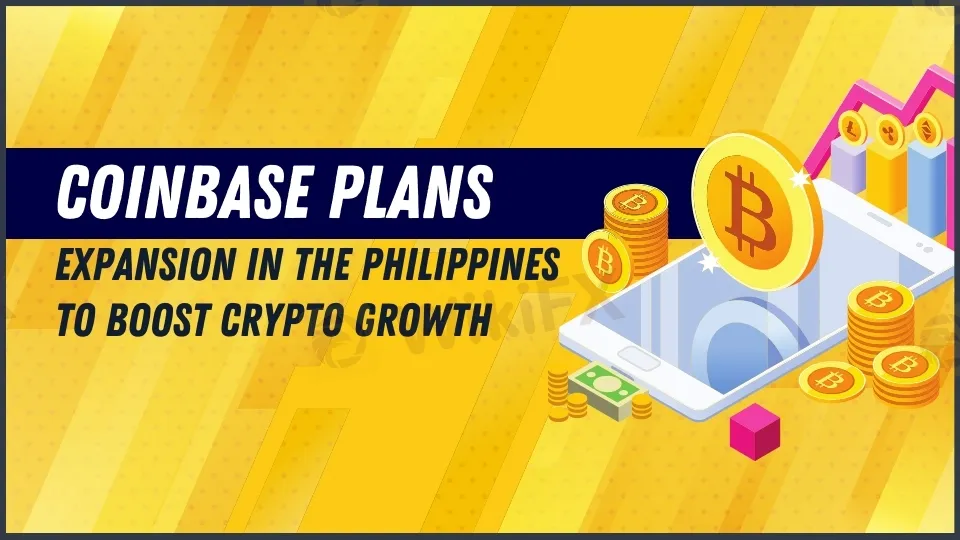简体中文
繁體中文
English
Pусский
日本語
ภาษาไทย
Tiếng Việt
Bahasa Indonesia
Español
हिन्दी
Filippiiniläinen
Français
Deutsch
Português
Türkçe
한국어
العربية
Coinbase Plans Expansion in the Philippines to Boost Crypto Growth
abstrak:Coinbase plans to expand in the Philippines, aiming to increase crypto adoption and grow the blockchain economy with a new country manager.

Coinbase Expands Blockchain Presence in the Philippines
Cryptocurrency platform Coinbase is ramping up its efforts to expand its presence in the Philippines as more Filipinos embrace blockchain technology. The company plans to hire a country manager to lead the charge, with the goal of boosting crypto adoption and on-chain activity in the Southeast Asian nation.
“We are actively working to expand the Base team in the Philippines,” said Jesse Pollak, Coinbase founder and executive team member, in an interview with BusinessWorld. “Were currently hiring a country leader for the Philippines, who will be responsible for growing the on-chain economy and overseeing Base's continued expansion.”
Pollak also highlighted the growing role the Philippines plays in the global crypto landscape. “The Philippines is one of the leading countries in terms of crypto adoption. Its one of the largest adopters of digital assets, behind India and Vietnam,” he added.
In the Philippines, many individuals have turned to Stablecoins for remittances and payments, taking advantage of the lower transaction fees. Coinbase has also observed Filipinos profiting from blockchain-based gaming platforms such as Yield Guild Games, which uses crypto to enable users to earn through gaming.

Pollak believes blockchain technology will also become a key enabler of artificial intelligence (AI) and anticipates more businesses will adopt cryptocurrencies for faster transactions, lower fees, and enhanced access to capital globally.
Moreover, the Philippine government‘s efforts to regulate digital assets are seen as a positive development. “We’re excited to see that progress happening in the Philippines,” Pollak said. He referenced the country's Securities and Exchange Commission (SEC), which is working on a regulatory framework for digital assets that could be introduced later this year or early next year.
This regulatory clarity is vital for enabling further innovation in the sector. “Governments worldwide are still figuring out how to regulate crypto,” Pollak noted. “The lack of clarity has slowed down innovation, but were hopeful that the Philippines will provide a supportive environment.”
Pollak also pointed to the possibility of creating a Philippine peso Stablecoin, which could significantly streamline the countrys on-chain economy, making it more efficient and accessible. He mentioned that Stablecoins, like a peso-backed digital currency, could play a transformative role in reducing transaction costs and increasing the speed of financial services across the country.
To drive blockchain adoption, Coinbase is investing in education through its Buildathon events. These initiatives teach participants how to develop and utilize blockchain technology. Additionally, the company continues to improve the user experience on its platform, enhancing ease of use, lowering transaction fees, and integrating new products into its smart wallet feature.
As of now, Coinbase operates an office in the Philippines with 250 employees, further solidifying its commitment to the local market. The companys strategy includes both technological advancements and community-focused education to foster the growth of the on-chain economy.
Final Thoughts
Coinbase's expansion into the Philippines marks a significant milestone in the global adoption of blockchain technology. With regulatory support and increasing public interest, the Philippines is poised to become a key player in the on-chain economy. Coinbase's focus on education, regulatory collaboration, and service improvements is setting the stage for continued growth and crypto adoption in the region.

Disclaimer:
Ang mga pananaw sa artikulong ito ay kumakatawan lamang sa mga personal na pananaw ng may-akda at hindi bumubuo ng payo sa pamumuhunan para sa platform na ito. Ang platform na ito ay hindi ginagarantiyahan ang kawastuhan, pagkakumpleto at pagiging maagap na impormasyon ng artikulo, o mananagot din para sa anumang pagkawala na sanhi ng paggamit o pag-asa ng impormasyon ng artikulo.
Broker ng WikiFX
Exchange Rate


